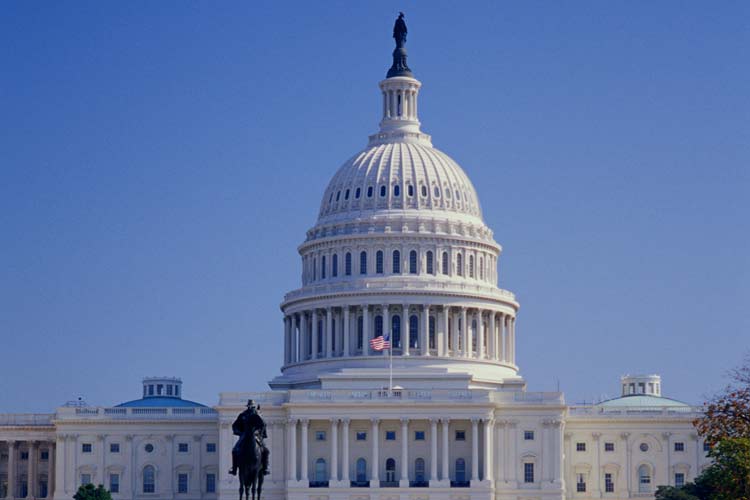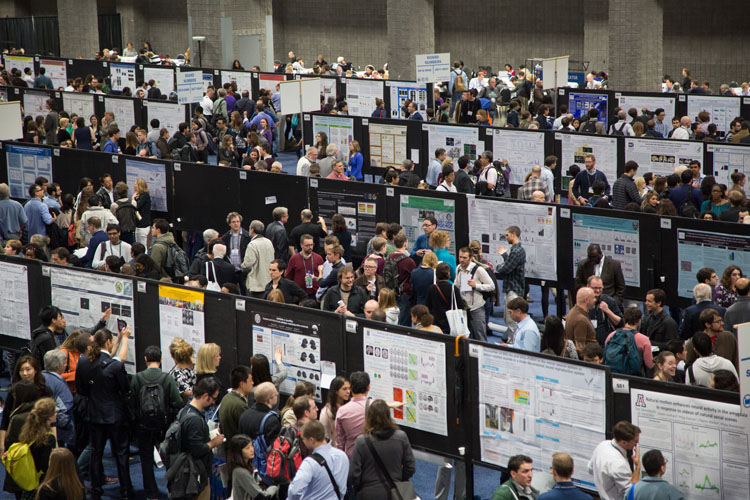
Government Careers: Serving the Public and Science
Editor’s Note: This article is part of an NQ series highlighting career paths for neuroscientists. Read the introductory article for an overview of the diverse range of career opportunities available to neuroscientists and how the field is addressing the evolving career and training landscape. Read the Summer 2015 article “Careers in Academia: Advancing Research One Step at a Time” to learn more about opportunities in academic research and administration.
Molecular neurobiologist Michael Hastings never planned on working as a government scientist. Having worked for nearly 20 years to establish a laboratory and attain a tenured position at Cambridge University in the U.K., he had a comfortable career teaching anatomy to medical students and studying hormones and circadian rhythms.
Then, the genes making up the circadian clock were discovered.
“There was this wave of discoveries — first in flies, then in mammals — and the field I was working in changed,” Hastings said. “I consciously thought, if I want to continue doing exciting new science, I’ve got to change what I do.”
Hastings decided to take a sabbatical at the U.K.’s Medical Research Council’s Laboratory of Molecular Biology in Cambridge, where he ultimately stayed. “I knew I was taking a gamble giving up my tenured position,” he said. “But, here, I can follow my own curiosity wherever it takes me.”
Hastings’ position as an intramural scientist at a government laboratory is only one of the many types of career opportunities for neuroscientists in governments across the globe. Careers ranging from science policy to ethics to research are available for those who wish to serve in government.
“I actually love working for the government,” said Kathie Olsen, founder of consulting firm ScienceWorks, former NSF deputy director, and former chief scientist at NASA. “You can really move and make impacts that can actually impact not just your field or your laboratory, but the entire science enterprise.”
At the Public Bench
Hastings’ role as a publicly funded scientist is similar to that of neuroscientists in academia. He is a bench scientist employing molecular tools to understand how “clock” genes control circadian rhythms. But his position affords him the luxury of conducting his own science in a world-renowned medical institute.
“The greatest reward is being able to follow my own curiosity and occasionally get things wrong and not really worry about that because you need to break eggs to make an omelet, so to speak,” Hastings said.
Kevin Briggman works as an intramural investigator in the Circuit Dynamics and Connectivity Unit at National Institute of Neurological Disorders and Stroke (NINDS) in the U.S. He spent his postdoc at the Max Planck Institute for Medical Research in Heidelberg, Germany, developing a technique to combine functional imaging with detailed electron microscopy documenting neuronal connections. But when it came time to look for a permanent position, Briggman realized he needed to find an institution that could bear his startup costs.
“At NIH, there are few distractions,” he said. “I don’t teach classes unless I want to, I still carry out my own experiments, and I don’t have to apply for grants. As a result, I can plan much longer-range experiments.”
Both Hastings and Briggman said they are privileged to work for government laboratories and feel a strong responsibility to the public that supports their work, noting that it’s very important to show they are using taxpayer support appropriately.
“This a path for people who really want to explore their curiosity, want to do the research themselves, and don’t care if they aren’t the head of some great scientific empire,” Hastings said.
Agency Work
Tamami Fukushi jumped straight into a position at a government agency when she returned to Japan after completing her postdoc in the U.S. The Neuroethics Research Group at Research Institute of Science and Technology for Society was looking for someone to promote communication about the new field of neuroethics and collaboration between neuroscientists and ethicists. “This position really required strategic planning, tolerance, balancing and understanding of conflicting viewpoints [to come to] viable solutions,” said Fukushi, adding that she enjoyed developing these skills.
Her current position, planning and coordination officer at Office of International Programs at the Pharmaceuticals and Medical Devices Agency — the Japanese equivalent of the U.S. Food and Drug Administration — places her at the nexus of international communication and regulation, where she works on promoting international harmonization efforts and coordinating training efforts for foreign regulators.
“My work is challenging because I am not a pharmacist or a chemist, I’m more of a generalist,” Fukushi said. “It is a very unusual career in Japan, but students should not be afraid to go outside the university to look for good opportunities.”
Directing National Agendas
Ian Chubb, chief scientist of Australia, wholeheartedly agreed with Fukushi’s advice to look for other opportunities. Chubb, who advises Australia’s prime minister on broad policy directions in matters of science, technology, and innovation, credits his entire career with good mix of opportunity and timing.
While Chubb considered himself a “reasonably accomplished researcher” in his academic career, he felt he could make a bigger contribution in the overall management of universities. So after five years in academia, he pursued administrative positions at several universities. “I have always tried to do something that was a little bit hard for me, and I had to test myself to rise to the challenge,” Chubb said.
After retiring from the role of vice chancellor from Australian National University in 2011, Chubb was offered the job as chief scientist, which he said he was happy to take because it brought him back to science and offered him the chance to fulfill an ambition: to try to influence politicians to do the right thing.
“The greatest reward is when politicians agree with you on something that is important,” said Chubb, who encourages neuroscientists to engage with politicians. “If you are attempting to shift the science policy of the country and the ideas are being adopted and implemented, you get a great sense of achievement from that.”
Preparing for a Career in Government
Contemplating the leap from the traditional academic track to government service may seem daunting; however, most neuroscientists already possess some of the crucial skills needed for these jobs thanks to their scientific training.
Chubb said he “never stopped thinking like a scientist because an education in science influences the ways you approach evidence and the ways you approach arguments.”
He also stressed the importance of being open to other opinions and sources of information. “You need to be open-minded and able to modify your view as you go,” Chubb said. “You must be able to make decisions and have a vision, but then you have to persuade people to follow you.”
Regardless of whether a scientist chooses a research, communication, or policy position in government, he or she must be flexible enough to seize opportunities as they arise. “Junior colleagues often have very clearly marked out plans for how their careers will progress, and that’s a good thing because you have to have ambition,” Hastings said. “But you can’t be too beholden to things you thought you were going to do 10 years ago.”























